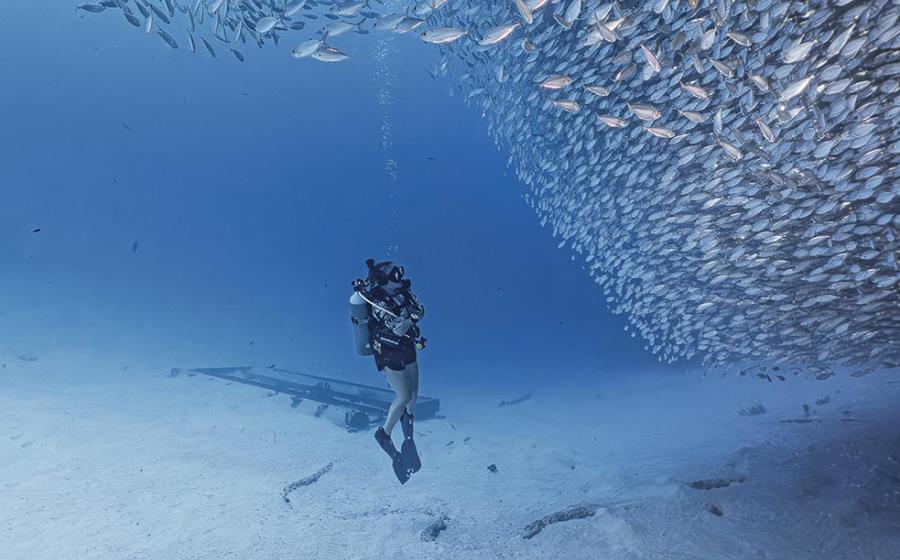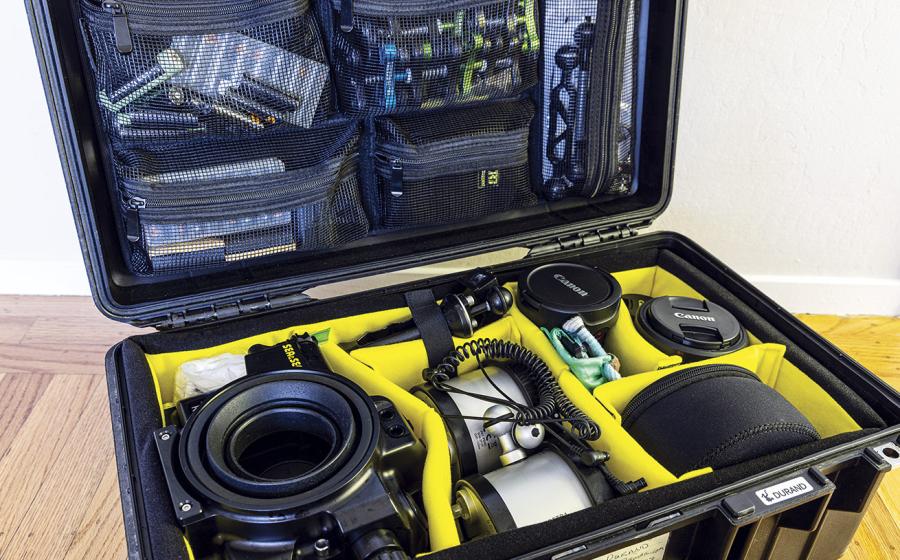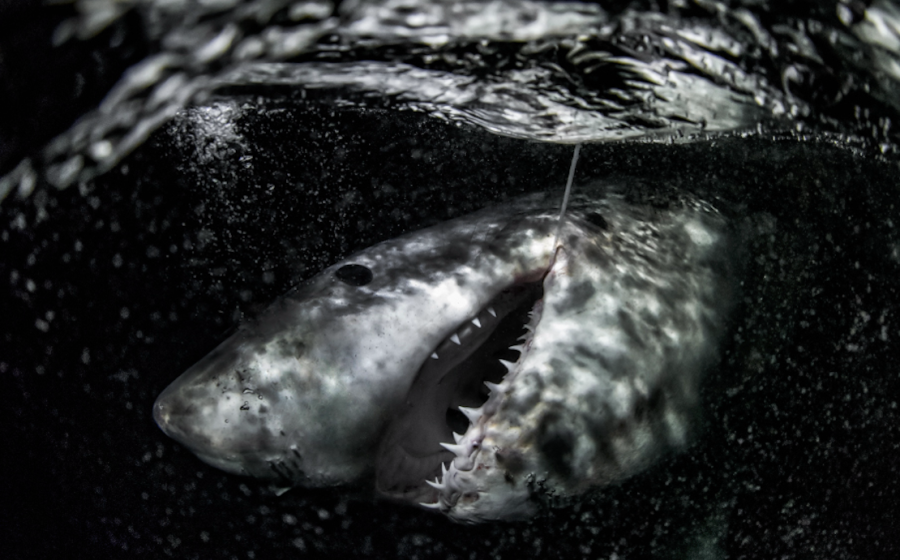Signs and Symptoms of Decompression Sickness (DCS)
200805_askdan.JPG
DCI SYMPTOMS
Mild: These symptoms are commonly mistaken for something else.
- Itchy skin
- Headache
- Rash
- Joint or musculoskeletal pain
- Nausea
- Swelling
- Fatigue
Severe: These are more dramatic and often easier to discern.
- Tingling, numbness or paralysis
- Muscle weakness
- Abnormal bladder or bowel function
- Changes in vision or hearing
- Memory loss
- Personality changes
- Collapse or unconsciousness
- Cardiac arrest
It's several hours after a dive. You've got a headache, your joints are sore and you're tired. How do you know if you're experiencing decompression illness or simply ready for bed? At DAN, our 24-hour Diving Emergency Hotline receives more calls from divers confused about decompression illness (DCI) than any other topic. To safely enjoy this sport, all divers need to make sure they're well informed about the signs and symptoms of this injury so they can get proper treatment fast if it does happen. In fact, one of the most dangerous aspects of DCI is denial. Divers sometimes fail to call for help because they simply don't recognize their symptoms as possible signs of DCI, but many realize something's wrong and simply choose to ignore it because of pride or disbelief. DCI is an injury inherent to scuba diving, and there's no shame in admitting you're injured and calling for help. Seeking treatment does not mean you did something wrong, it does not mean an automatic ride in a hyperbaric chamber and it does not necessarily mean the end of your diving career. If you hurt your ankle playing basketball, you wouldn't hesitate to seek treatment, so apply that same mentality to diving. DCI can happen to anyone, and early treatment is more effective. If your symptoms turn out to be nothing, great, just make sure that diagnosis comes from a qualified medical physician, not your dive buddy.
First, let's be clear about what the term DCI means. It's actually a blanket term covering two separate injuries: decompression sickness (DCS), caused by nitrogen bubbles that form in the bloodstream, and arterial gas embolism (AGE), caused by lung over-pressurization. These two afflictions share many symptoms, and both follow the same care and treatment. So, for all intents and purposes, divers should think of them in terms of a single illness rather than try and differentiate the subtle differences.
The signs and symptoms of DCI range from mild to severe (see "DCI Symptoms," p. 86), and because symptoms generally manifest themselves only a few at a time, you should never wait until you experience all the symptoms on the list before calling for help. However, of the most common DCI symptoms, some are common ailments for people in general, and trying to determine whether something like a headache is DCI-related can confuse even the most experienced divers. Based on the questions we receive through our hotline, the following four symptoms are the most confusing. We'll explain how to evaluate them and the best course of action if you or someone you're with experiences one of these after a dive.
FATIGUE
Probably one of the most confusing symptoms associated with DCI is fatigue, as most all divers experience some level of fatigue after diving. To help decide when it's time to seek further evaluation, try to compare your fatigue with the amount of fatigue you normally feel after a similar dive. If the level of fatigue is grossly out of proportion with what you would expect, seek medical attention. Divers who report DCI-related fatigue often describe it as incapacitating, making them unable to perform routine tasks. Another red flag is when the fatigue doesn't improve with rest. For example, if a diver surfaces from a dive feeling exhausted, sleeps the whole boat ride back to shore and doesn't feel better after waking up back at the dock, DCI may be a factor.
JOINT PAIN
DAN receives calls almost every weekend from divers who experience shoulder or elbow discomfort. These callers usually attribute the discomfort to carrying tanks or equipment or recent exercise. The first question to ask divers in this situation is whether the discomfort started before or after diving. Obviously, if the pain existed before their first dive, the chances of DCI are unlikely. Regardless of their answer, though, the next question should be whether the discomfort worsens with movement or exertion. Many divers diagnosed with DCI say their pain feels constant and generalized across the joint area, and they usually have trouble finding a comfortable position, whether moving or resting. We often hear, "I have never felt anything like this before." Also, if the diver can point to the area of discomfort with one finger, the possibility of DCI is much lower. But even with a mild suspicion of DCI, continue to monitor the diver for other possible symptoms.
MUSCULOSKELETAL PAIN
Divers who have had traumatic injuries to their spines may be able to return to diving after appropriate treatment, but injuries such as a herniated, bulging or ruptured disc, nerve impingement and degenerative disc disease can create back pain symptoms very similar to DCI, and frankly, there's no good way to tell them apart. Divers with a known history of back or neck problems should follow dive profiles that are as conservative as possible to help avoid the risk of clinical confusion with DCI. And if you or someone you're diving with does experience this type of pain, seek medical advice immediately just to be sure.
HEADACHES
One of the most common post-dive ailments, headaches have many possible causes, including a mask strap that's too tight, cold water, exertion, sinus barotrauma, hunger and DCI, and a headache without other symptoms is very unlikely to be caused by DCI. If a diver is experiencing a headache after getting out of the water, use the symptoms checklist and/or the neurological assessment described below to assess the diver for other indications, or if the headache is severe, seek immediate medical attention regardless.
Neurological Assessment
Along with a symptoms checklist, another way to assess a potential DCI victim in the field is with a neurological assessment. Ultimately, only medical doctors can definitively diagnose DCI, and even they can't always be 100 percent positive. However, while we would never recommend individuals diagnose other divers as a replacement for a professional evaluation, knowing what to look for can help focus your suspicions of DCI, and this may reduce the reluctance of some divers to report symptoms. Also, a well-performed neurological assessment can provide valuable information to medical professionals when they arrive on the scene, so always make sure to write down any signs and symptoms you notice when evaluating a victim. Visit scubadiving.com/field_exam to print out DAN's worksheet for performing a neurological evaluation in the field, and take it with you on your next dive trip. Even better, take DAN's On-Site Neurological Assessment for Divers class. This four-hour training program provides divers with the appropriate training for DCI first response. Visit diversalertnetwork.org/training/courses/neuro/index.asp to learn more.
Symptoms of Decompression Sickness, or DCS
Mild: These symptoms are commonly mistaken for something else.
- Itchy skin
- Headache
- Rash
- Joint or musculoskeletal pain
- Nausea
- Swelling
- Fatigue
Severe: These are more dramatic and often easier to discern.
- Tingling, numbness or paralysis
- Muscle weakness
- Abnormal bladder or bowel function
- Changes in vision or hearing
- Memory loss
- Personality changes
- Collapse or unconsciousness
- Cardiac arrest
It's several hours after a dive. You've got a headache, your joints are sore and you're tired. How do you know if you're experiencing decompression illness or simply ready for bed? At DAN, our 24-hour Diving Emergency Hotline receives more calls from divers confused about decompression illness (DCI) than any other topic. To safely enjoy this sport, all divers need to make sure they're well informed about the signs and symptoms of this injury so they can get proper treatment fast if it does happen. In fact, one of the most dangerous aspects of DCI is denial. Divers sometimes fail to call for help because they simply don't recognize their symptoms as possible signs of DCI, but many realize something's wrong and simply choose to ignore it because of pride or disbelief. DCI is an injury inherent to scuba diving, and there's no shame in admitting you're injured and calling for help. Seeking treatment does not mean you did something wrong, it does not mean an automatic ride in a hyperbaric chamber and it does not necessarily mean the end of your diving career. If you hurt your ankle playing basketball, you wouldn't hesitate to seek treatment, so apply that same mentality to diving. DCI can happen to anyone, and early treatment is more effective. If your symptoms turn out to be nothing, great, just make sure that diagnosis comes from a qualified medical physician, not your dive buddy.
First, let's be clear about what the term DCI means. It's actually a blanket term covering two separate injuries: decompression sickness (DCS), caused by nitrogen bubbles that form in the bloodstream, and arterial gas embolism (AGE), caused by lung over-pressurization. These two afflictions share many symptoms, and both follow the same care and treatment. So, for all intents and purposes, divers should think of them in terms of a single illness rather than try and differentiate the subtle differences.
The signs and symptoms of DCI range from mild to severe (see "DCI Symptoms," p. 86), and because symptoms generally manifest themselves only a few at a time, you should never wait until you experience all the symptoms on the list before calling for help. However, of the most common DCI symptoms, some are common ailments for people in general, and trying to determine whether something like a headache is DCI-related can confuse even the most experienced divers. Based on the questions we receive through our hotline, the following four symptoms are the most confusing. We'll explain how to evaluate them and the best course of action if you or someone you're with experiences one of these after a dive.
FATIGUE Probably one of the most confusing symptoms associated with DCI is fatigue, as most all divers experience some level of fatigue after diving. To help decide when it's time to seek further evaluation, try to compare your fatigue with the amount of fatigue you normally feel after a similar dive. If the level of fatigue is grossly out of proportion with what you would expect, seek medical attention. Divers who report DCI-related fatigue often describe it as incapacitating, making them unable to perform routine tasks. Another red flag is when the fatigue doesn't improve with rest. For example, if a diver surfaces from a dive feeling exhausted, sleeps the whole boat ride back to shore and doesn't feel better after waking up back at the dock, DCI may be a factor.
JOINT PAIN
DAN receives calls almost every weekend from divers who experience shoulder or elbow discomfort. These callers usually attribute the discomfort to carrying tanks or equipment or recent exercise. The first question to ask divers in this situation is whether the discomfort started before or after diving. Obviously, if the pain existed before their first dive, the chances of DCI are unlikely. Regardless of their answer, though, the next question should be whether the discomfort worsens with movement or exertion. Many divers diagnosed with DCI say their pain feels constant and generalized across the joint area, and they usually have trouble finding a comfortable position, whether moving or resting. We often hear, "I have never felt anything like this before." Also, if the diver can point to the area of discomfort with one finger, the possibility of DCI is much lower. But even with a mild suspicion of DCI, continue to monitor the diver for other possible symptoms.
MUSCULOSKELETAL PAIN
Divers who have had traumatic injuries to their spines may be able to return to diving after appropriate treatment, but injuries such as a herniated, bulging or ruptured disc, nerve impingement and degenerative disc disease can create back pain symptoms very similar to DCI, and frankly, there's no good way to tell them apart. Divers with a known history of back or neck problems should follow dive profiles that are as conservative as possible to help avoid the risk of clinical confusion with DCI. And if you or someone you're diving with does experience this type of pain, seek medical advice immediately just to be sure.
HEADACHES
One of the most common post-dive ailments, headaches have many possible causes, including a mask strap that's too tight, cold water, exertion, sinus barotrauma, hunger and DCI, and a headache without other symptoms is very unlikely to be caused by DCI. If a diver is experiencing a headache after getting out of the water, use the symptoms checklist and/or the neurological assessment described below to assess the diver for other indications, or if the headache is severe, seek immediate medical attention regardless.
Neurological Assessment
Along with a symptoms checklist, another way to assess a potential DCI victim in the field is with a neurological assessment. Ultimately, only medical doctors can definitively diagnose DCI, and even they can't always be 100 percent positive. However, while we would never recommend individuals diagnose other divers as a replacement for a professional evaluation, knowing what to look for can help focus your suspicions of DCI, and this may reduce the reluctance of some divers to report symptoms. Also, a well-performed neurological assessment can provide valuable information to medical professionals when they arrive on the scene, so always make sure to write down any signs and symptoms you notice when evaluating a victim. Visit /field_exam to print out DAN's worksheet for performing a neurological evaluation in the field, and take it with you on your next dive trip. Even better, take DAN's On-Site Neurological Assessment for Divers class. This four-hour training program provides divers with the appropriate training for DCI first response. Visit diversalertnetwork.org/training/courses/neuro/index.asp to learn more.










